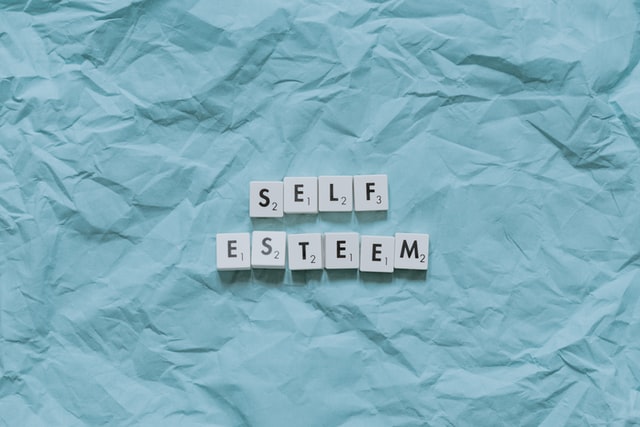Love & Dating
How to fix a Codependent Relationship


Last Updated on August 31, 2022 by Joshua Isibor
How to fix a codependent relationship is an important question. However, it’s not as important as truly understanding what it means to be codependent.
To properly be able to fix a codependent relationship, you must first know if the relationship is codependent or it’s just love.
How about we understand the meaning of a codependent relationship?
Here’s it……
What Does It Mean To Be Codependent?
Codependency or being codependent in a relationship happens when you are so into what your partner does that you eventually lose yourself in the process.
Oftentimes, codependency occurs when you are with someone who has some kind of addiction or a psychological disorder. This could include alcohol, sex, drugs, food, video games, shopping, or even the internet.
What your partner is addicted to doesn’t really matter. What’s really important is that it takes your partner away from you. The addiction makes them focus only on themselves.
Personality disorders such as Borderline Personality Disorder, Narcissistic Personality Disorder, and others are usually the kind of psychological problems that magnet or produce partners with codependency.
It is usually very confusing when trying to decipher between codependency and love. People think that if we love someone, we put the person’s needs before ours; thus, making their happiness our priority.
You’ve heard of the saying that love is sacrifice and not selfishness. Just like in the case of parents, their children’s needs have to always come before theirs.
They are not going to let their babies cry for long hours from hunger at midnight middle simply because they are tired and sleepy. Being responsible as a parent is part of what it means to love their children unconditionally.
However, this shouldn’t apply to adult love relationships. Because, when you always put your partner first in your relationships, even at the expense of your health or well-being, you may be CODEPENDENT.
More on Codependency….
How do people become codependent?
Codependency is not an inbuilt trait; it’s a learned behavior. Naturally, we watch the actions of our parents when we are children. If either our mother or father showed any traits such as
- Had a problem with boundaries
- Was always the martyr
- Could never say ‘no’ to people
- Had unhealthy ways to communicate…..
Unconsciously, we may have learned these behaviors. And sadly, we may have brought them into our intimate relationships.
Examples of these are children who were raised by emotionally unavailable parents. Since they are at risk of being codependent.
When they become adults, they most times find themselves in relationships where their partner is emotionally unavailable. Yet, they do not leave with the hopes that they can change their partners.
No matter how extreme things become, they won’t stop hoping that there will come a day when things will be good.
This subconscious hopes that the other person will see all the love given. Thereby being inspired to change. There is this belief that if they don’t give up and give their love, understanding, and support, they will finally get the love they deserve.
This thinking, however, is very vain and destructive. It is especially dangerous if the partner is physically or emotionally abusive behavior kind.
It is most destructive when we do not realize what is going on. And just continue to live in a loveless relationship because they have never learned what a real relationship is.
Codependent people never believe that they are worthy of love, so they often settle for less. So, they often find themselves taking all sorts of abuse even sexual abuse from their partner.
ALSO, READ How to deal with a nagging partner
Codependent people do not derive happiness from inward things. But often look for things outside of themselves to derive joy. They form unhealthy relationships; because they want to ‘fix the other person.
A person with codependent tendencies, he or she may be in an intimate relationship with someone who has addiction issues which makes them emotionally unavailable.


Why codependency and Addiction are Always Found Together; Just how are these two behaviors related?
Whenever there is a case of codependency, addiction is a subject or attribute that is oftentimes in view. The relationship between codependency and addiction is a re-occurring type.
In most cases where one partner is codependent, the other is usually having an addiction problem.
One of the issues with a codependent relationship is that you may be the reason your partner’s addiction is getting worse. In the attempt to help your partner by showing your love, you may discourage him or her from getting the necessary treatment to get sober.
Some example of this instance includes
- You justify your spouse’s drinking. Just by giving the excuse that he has had a stressful day or needs to relax.
- You make excuses for your partner when they can’t come to social functions. Which may just be because he/she is under the influence of heroin.
- You still let him/her borrow your prescription opioids whenever he complains of minor discomfort. Even though you’re aware and worried about his growing dependence on such medication.
- You quietly take on extra responsibilities around the house. Doing your partner’s chores just because they are under the influence.
- You are frequently found apologizing to others or doing favors to repair relationships damaged by your partner’s drug, or alcohol abuse, or mental illness.
On a serious note, addiction affects sensible judgment and even critical thinking skills. Making it very difficult for someone with an abuse disorder to realize they need help.
When you go out of your way to prevent your partner from experiencing the consequences of substance abuse, they may acknowledge that they have a problem.
Loving someone with an abuse issue can also cause your codependent tendencies to erupt. When your partner is misbehaving due to substance abuse, it’s easy to resort to using codependent behavior.
This is simply because of your fight to maintain a sense of control over the chaotic surrounding, you have lost yourself.
The next stage in this article is to check if you are codependent.
Are you codependent? How to know the answer to this question is to take a look at you.
Below are some statements; if you agree with them, you may be codependent.
- You seem to love people that are pitiable and need rescue.
- You feel responsible for the actions of others even if you were not directly involved with them.
- You do more than your share in the relationship.
- You have the fear of abandonment or being alone.
- You feel responsible for your partner’s happiness.
- You have lost your self-worth thus, only depend on others’ appraisal.
- You have difficulty adjusting to change.
- It is difficult for you to make decisions and often doubt yourself.
- You are reluctant to trust others.
- Your moods are controlled by the thoughts and feelings of those around you.
Is Your Relationship Codependent?
Although Codependency is of different types, in a case when you are unable to define the situation try to answer these questions.
- Are you always covering up for your partner so that they won’t get punished for their wrong deeds?
- Are you making excuses for your partner’s behaviors?
- Do you deny the fact that your partner has an abuse issue or is mentally unstable?
- Do you know of your partner’s illness but are you scared of asking him/her to get help just because you don’t want them to get mad or leave you?
- When conflict arises in your relationship and your partner becomes abusive. Do you take the blame for their verbal, physical, or emotional abusive?
- Are you literally and figuratively cleaning up after your partner’s mess?
- Are you very self-conscious in action and speech so you won’t upset your partner?
- Are you always worrying about your partner? And thinking about what they are doing but scared to ask? Or even going as extreme as snooping to find out?
- Are you unable to function and constantly obsessing over your relationship when your relationship is having issues?
- Is your partner’s needs always the first for consideration?
- Are you struggling to set boundaries with your partner?
- Are you obsessed with your relationship?
- Is your relationship the major aspect of your life?
- Are you struggling with growth in your relationship?
How to fix a codependent relationship
Now that we have fully established what a codependent relationship is, how to recognize it, and how to differentiate it from love, it is time to see what control measures are available.
Codependency is not a condition that cannot be helped. It is learned!! thus, can be unlearned. If you truly love that person and you want to keep them, you need to help yourself heal first.
1. Be Ready To Fix It!
To fix a codependent relationship, you MUST first choose to stop. This is a decision you must make to enable you actually take steps. It may prove to be harder than you initially thought it would be, but it’s a challenge you must overcome. Decision-making is very crucial to any set goal in life.
2. Build Your Self Esteem


To stop being codependent in your relationship, you must build your self-esteem. Start taking your confidence level importantly.
Stop neglecting your self-worth. Be mindful of the way that you regard yourself either verbally or otherwise. Let positivity rule out negativity.
Love yourself and focus more on your strengths rather than weakness. When failures occur, see them as opportunities for learning and growth. Immediately, learn to stop blaming yourself for your partner’s shortcomings.
3. Let The Mountains Fall!
For the love of everything wonderful! Please, allow the consequences to happen. If your partner has shortcomings, allow them to face the natural consequences of their actions.
What we do not understand is that sometimes, one-way addicts get better is by hitting “rock bottom.” And if you are always covering up for them, this would not happen.
Oftentimes, when we allow them to face these consequences, guilt creeps inside of us. You feel like a terrible person but the truth is this; you are not!
This is because the alternative you have is to continue to indulge them and block the lessons that your partner desperately needs to learn to effect change in them.
4. Say “No” Being A Codependent Enabler


A codependent enabler is someone who does not know his/her boundaries. You have to understand that the word “NO.” is a complete sentence.
Understand your limits and don’t cross them for any reason; not even in the name of love. You do this by scanning your own body for your feelings.
Understand what makes you feel uncomfortable and without guilt, permit yourself to stop regardless of how your partner feels about it. Prioritize your own feelings of comfort instead of your partners.
A way to truly love you is by setting healthy boundaries. Stop expecting your partner to know when your limit. Don’t assume they know, say a big “No” and mean it.
5. Reach Out!!
This is a very important one. Realize you need help and ask for it. Don’t assume there is no help because there is loads of it out there.
Knowing that there are a lot of people of their facing the same challenge is a vital tool. It helps you feel less isolated, and connect better with the healing process.
Check out books on codependency and read them. Therapy or counseling is also an option you can explore.
Endnote….
Wrapping up, I hope this article has been insightful and educational to you. If you are in a codependent relationship, you need to properly understand the situation you are in and also take healthy steps to fix it.
You can start by being thoroughly honest with yourself and your partner, stop taking things too personally, and above all understand that SELF-CARE IS NEVER SELFISH.
ALSO, READ SIGNS YOU ARE NOT INTELLECTUALLY COMPATIBLE WITH YOUR PARTNER
ALSO, CHECK Manuela Escobar Net Worth, Biography, Deaf, and Age


-



 Text Messages2 months ago
Text Messages2 months agoBEST LOVE CONFESSION MESSAGES FOR HER OR HIM
-



 Sex Education3 years ago
Sex Education3 years ago10 Simple Hack to Make a Girl Send Her Nudes
-



 Text Messages2 months ago
Text Messages2 months agoHeart Touching RIP Uncle Quotes
-



 Text Messages2 months ago
Text Messages2 months agoBest Good Luck Wishes Before and After Surgery, for Family and Friends
-



 Text Messages2 months ago
Text Messages2 months agoFreaky and Dirty Paragraphs For Him Copy And Paste Yahoo
-



 Uncategorized3 years ago
Uncategorized3 years agoHOW TO FALL IN LOVE WITH YOURSELF
-



 Uncategorized4 weeks ago
Uncategorized4 weeks agoHOW TO KISS A BOY FOR THE FIRST TIME
-



 lifehacks2 years ago
lifehacks2 years agoWhat are Waist Beads? -10 Reasons Why Women Wear Waist Beads